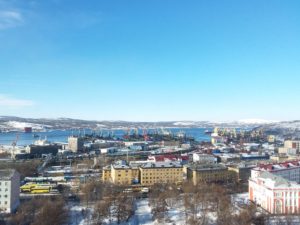6th April 2017
Farewell to Murmansk
I paid a farewell visit to the ‘hero city’ of Murmansk in late March. I’ve enjoyed many interesting visits to this Arctic city over the past few years but my introduction back in autumn 2013 was a little unexpected.
Instead of the routine range of introductory calls, my first visit to Murmansk included a prison visit and attending court hearings. This was in response to the arrest and detention of 30 Greenpeace activists and support staff (known as the ‘Arctic 30’) for attempting to climb on to a Gazprom oil platform. Six of the thirty were British. They were accused of piracy, spent almost three months in prison in Murmansk and then St Petersburg, before finally leaving Russia just before the New Year.
A memorable start but there is of course much more to our interests in Murmansk. Our shared history agenda is prominent with memories of the sacrifice and contribution made by our veterans of the Arctic Convoys still strong. A significant number of British soldiers and sailors also lost their lives in the Murmansk region in 1918-19 during what became known as the Allied Intervention. Annual visits around Remembrance Day are an important tradition. We have also made progress on business and around education where the creation of the new Murmansk Arctic State University promises to be an avenue for developing the sort of academic partnerships we have supported at the Northern Arctic Federal University in Arkhangelsk.
My farewell visit covered all of these key areas. I paid my respects and laid flowers at the cemetery to those who lost their lives in Murmansk region during the Allied Intervention period. I also visited the monument to those Russian sailors who died on the Kursk and other submarines. And a last visit to the huge Alyosha monument, built in memory of Soviet soldiers, sailors, and airmen who died during World War Two, overlooking the Kola bay. All looked magnificent on a bright sunny day with a deep covering of snow on the ground.
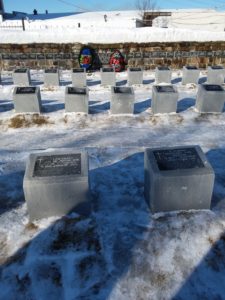
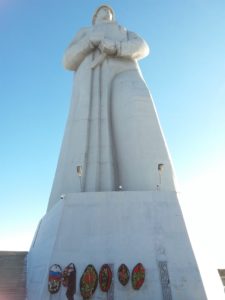
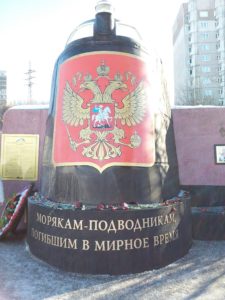
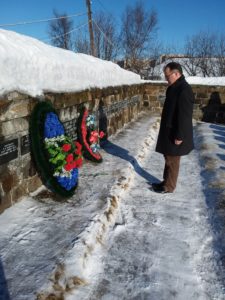
The regional administration offered their condolences on behalf of the administration and people of Murmansk region for the terror attack in London the day before my visit. I thanked them for their kind words and said that Murmansk would always be a very special place for the UK given the shared history of the Arctic Convoys. We were also doing what we could to forge new partnerships and cooperation between the younger generation. I heard how there was growing interest in Arctic cruises both from overseas and also from Russians who were keen to explore the region. The 72 hour visa free travel for cruise ship passengers is popular. Murmansk region is already an attractive destination for adventure tourism and those longing to see the Northern Lights.
There are of course many similarities between Murmansk and Arkhangelsk. Both have challenging climates and economies that rely on the sea, timber and other extractive industries. Both also face serious challenges with transportation and infrastructure, and importantly creating the right jobs and offering training and education that will convince the next generation to stay and not leave for the bright lights of Moscow and St Petersburg. Our work supporting collaborations between UK universities and those in Murmansk/Arkhangelsk will help.
As in Arkhangelsk, the Arctic Convoys of World War Two will always be warmly remembered in this freezing part of the Russian Arctic. I know that this consulate, in partnership with colleagues in Moscow, will continue to do all that they can to ensure this shared history is remembered and honoured. And they will look for other opportunities to forge new and innovative partnerships, all in the spirit of the example set by our brave veterans of the Arctic Convoys.
